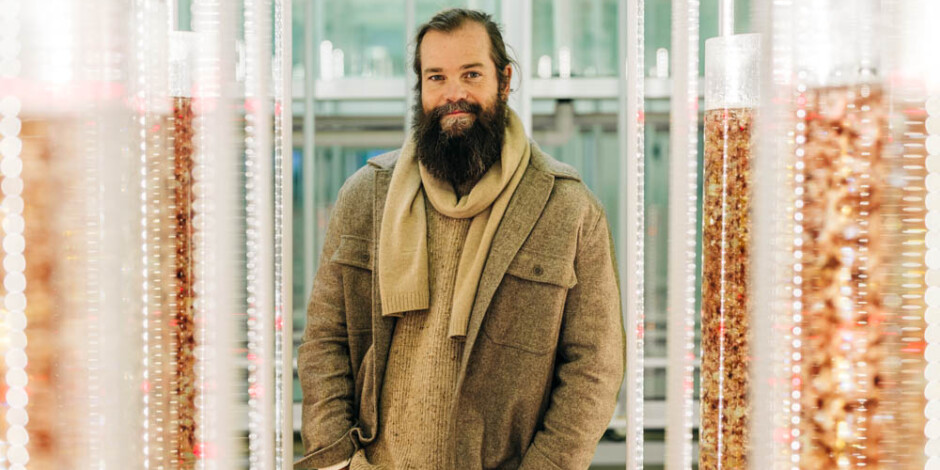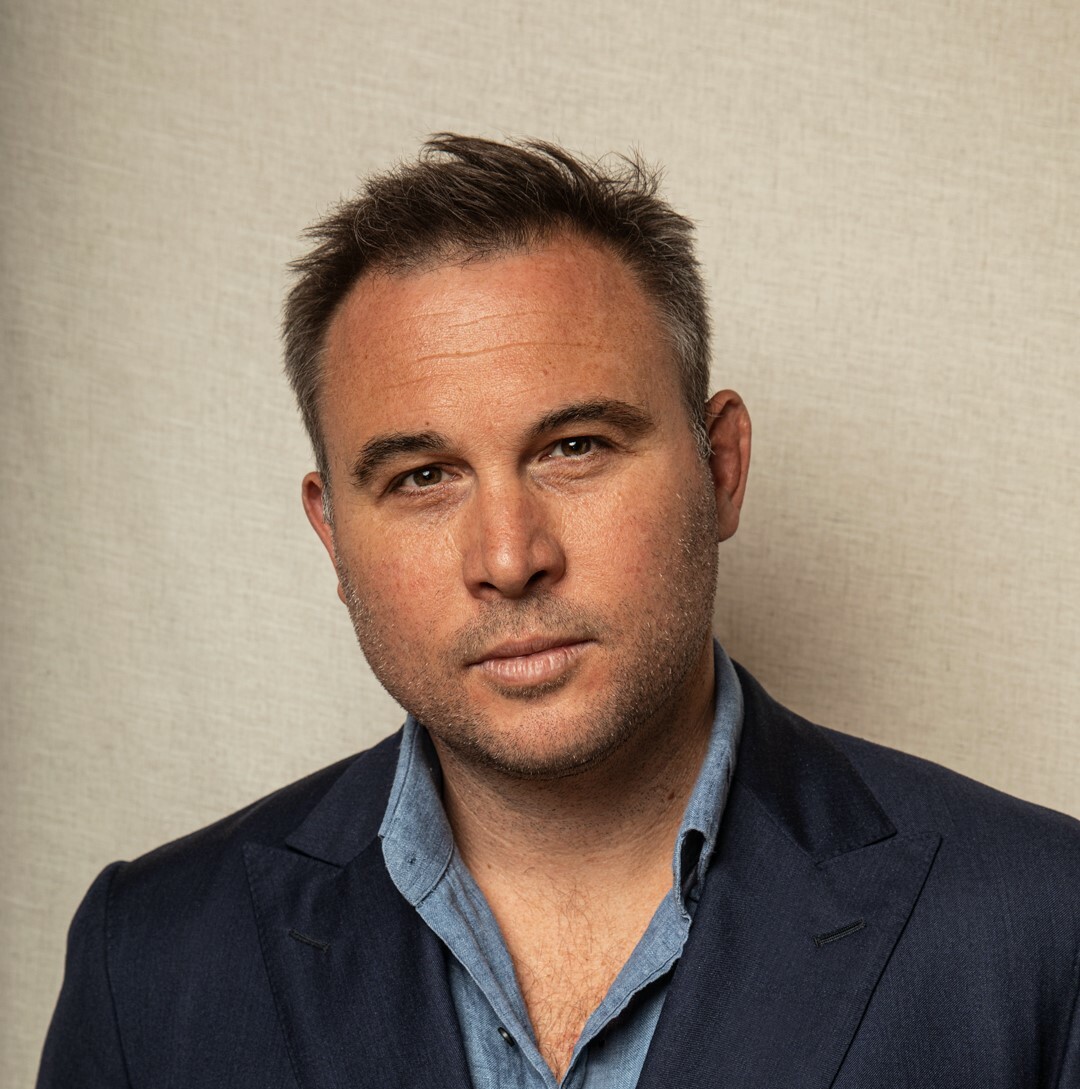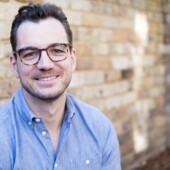M.J. Bale and Sea Forest Create World-first Carbon Neutral Wool
A quick disclosure — I love M.J. Bale suits. I was married in one, and most items in my wardrobe that aren’t workwear bear its label. The popularity of the Australian menswear brand shouldn't mean that it needs to worry about things like ethical clothing or sustainability, which have become selling points with consumers. It speaks to the morality of the clothier that it does. After becoming Australia’s first carbon-neutral fashion brand in 2021, the tailors to farmers, footballers and the top end of town have partnered with Sea Forest, an environmental technology company based in Tasmania, to further decarbonise their business by attacking the gassiest part – the sheep that produce the wool.
 From fashion to seaweed: Sam Elsom made a courageous leap which paid off. Photo: Adam Gibson.
From fashion to seaweed: Sam Elsom made a courageous leap which paid off. Photo: Adam Gibson.
Seeing red – seaweed leads to world-first carbon neutral wool
During a chance encounter with Sam Elsom, Co-Founder and CEO at Sea Forest, M.J. Bale learnt how to reduce methane emissions from sheep – by feeding them asparagopsis, a native red Australian seaweed. This meeting began a world-first trial feeding the supplement to Merino sheep at Kingston, the conservationist farm in the Tasmanian northern Midlands that supplies their wool. The result was the world’s first net zero suit — achieved without harming sheep or losing any of the world-class quality of the fleece.
According to research comissioned by Meat and Livestock Australia and the CSIRO, adding asparagopsis, or red seaweed, to the diet of livestock at a rate of 0.2% of their daily intake can reduce methane emissions by between 80%-98%.
View this post on Instagram
Sea Forest has successfully implemented this practice with M.J. Bale — without impacting wool production or fibre quality. The partnership is a ‘full circle’ moment for Sea Forest co-founder Sam Elsom, who went from fashion to seaweed farming after a unique phone call with an Australian climate giant.
The future eaters – a call to arms from Professor Tim Flannery
In 2018, Sam was on a call with the Climate Council. They were dissecting “Global Warming of 1.5 Degrees Celsius” – a special report from the Intergovernmental Panel on Climate Change (IPCC). The IPCC is the United Nations body for assessing climate science. The report, which included 6,000 scientific references and was prepared by 91 authors from 60 countries, found that limiting global warming to 1.5°C would require “rapid and far-reaching” transitions in land, energy, industry, buildings, transport and cities.
Professor Tim Flannery, internationally acclaimed scientist, explorer and conservationist and 2007 Australian of the year, is the Chief Councillor at the Climate Council – an independent, apolitical non-profit born of the ashes of the Climate Commission. The Climate Council has been a centre pivot of climate communication and policy since its inception. As he spoke on the call, Sam was thinking about his kids.
“Being a father, I was anxious about the world we are leaving behind for our children and their children,” Sam said. “And if the message is, ‘we have a short window to act, then we must act now.”
So, he started Sea Forest with Stephen Turner with an audacious mission – to decarbonise the global livestock industry. Sam was working in fashion at the time, but the size of the commitment gave Professor Flannery the jitters.
“He said: ‘It’s risky and scary, and the outcome is uncertain.’ He felt a great sense of concern for me,” Sam said.
Sam had a young family, a mortgage and a house that was undergoing renovation – and everything was put on hold.
The first few years were not easy – Sea Forest was in deep research and development to understand the science behind this native seaweed and to develop methods for cultivation but with no clear sign that it would be successful. Fortunately, Sea Forest had the support of Professor Rocky de Nys, now Chief Scientist at Sea Forest but former head of Aquaculture at James Cook University and the scientist responsible for introducing Asparagopsis into the CSIRO trials back in 2016.
“”Rocky is an amazing individual with such deep knowledge and experience in the seaweed, he has been more than just a team member but also a mentor throughout the process,” Sam said.
“We all live on this planet together, we have this finite amount of time to act, and we have an unbelievably enormous job to reduce emissions in line with global targets.”
This enthusiasm and sense of mission have led Sam to be a passionate, somewhat unintended voice in global climate action.
Agriculture a challenge – and a solution – to the climate challenge.
Under a decade on, Sam Elsom was invited as part of the Australian government’s delegation to COP27 last year. Determined to use the opportunity to share the seaweed-based solution Sea Forest is building and to meet with leaders across government and industry; the clock was ticking. One thing became clear as he made the rounds – agriculture was no longer the villain in our climate change story. It was the hero. Agriculture was everywhere – and people were listening.

Jonathan Lobban has been Head of Brand at M.J. Bale since 2018 but has worked with the company since 2009. Photo: Supplied.
The impact that the M.J. Bale-Sea Forest collaboration can have on the greatest challenge of our time is not lost on Jonathan Lobban, Head of Brand at M.J. Bale.
“This partnership is bigger than the both of us,” Jonathan said. “With methane-reduced wool, we think we’ve found a local solution to a global problem and the potential for the international fashion industry can’t be underestimated.”
“It proves that Aussie Merino wool is not just a renewable, biodegradable natural fibre, but the very production of it can have a ‘close to net zero effect’ on emissions.”
M.J. Bale has been certified carbon neutral through a two-year business lifecycle review by Climate Active – an Australian Government Initiative to help buyers understand a business’s climate credentials. However, its ambition goes beyond sustainable clothing – the luxury men’s clothier wants to revive a lost industry.
“Through this project, we’re also hoping to help revitalise the Australian wool processing, weaving and manufacturing industries, which are almost exclusively operating at a boutique level right now, at least in the fashion value chain,” Jonathan said.
“We’re exploring the potential for expanding our range of M.J. Bale methane-reduced wool products to sell through our 70-plus stores across the country. We’re still in the early stages, but it’s bloody exciting.”
And, if, like me, you’re wondering when you can get your hands on red seaweed to feed your livestock, Sam has good news:
“We aim to have this product available to farmers around the country as soon as we can,” he said.
“Within 12 months, you will be able to buy Sea Forest products off the shelf.”
Sam and Jonathan, joined Angela Winkle, Chief Sustainability Officer at RM Williams on a panel discussion “Farm to arm fashion: how innovation is driving sustainability on the runway” at evokeAG. 2023 in Adelaide. Watch the session facilitated by Samantha Noon and hear how innovation is driving sustainability within the fashion industry.
